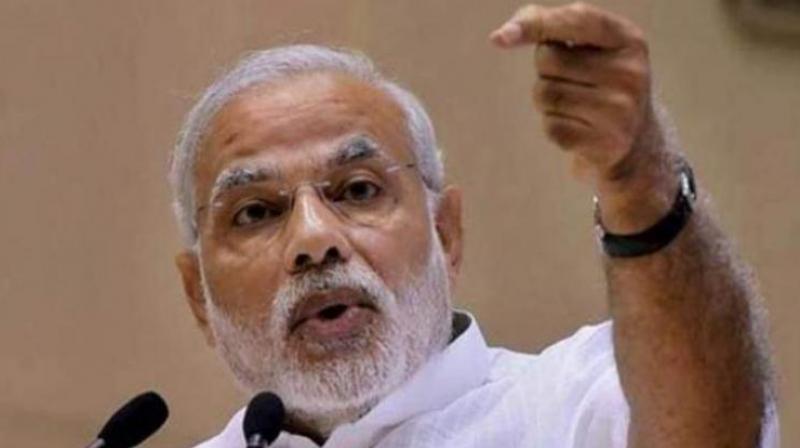As election dust settles, jobs, trade, security high on government\'s to-do list
Unemployment rose to 7.6 per cent in April, the highest since October 2016, and up from 6.71 per cent in March.

New Delhi: Exit polls after the end of India’s general election on Sunday showed Prime Minister Narendra Modi’s Bharatiya Janata Party (BJP) and its allies retaining power with an overwhelming majority.
The Hindu nationalist leader will need to tackle a host of issues ranging from unemployment to weak economic growth:
JOBS
Creating work for an estimated 1.2 million young people entering the market each month will be a key challenge. Economists say the next prime minister will need to encourage businesses to step up investment to create job opportunities.
Unemployment rose to 7.6 per cent in April, the highest since October 2016, and up from 6.71 per cent in March, data from private think-tank the Centre for Monitoring Indian Economy showed.
An official survey that was withheld by the government showed India’s unemployment rate rose to 6.1 per cent, the highest level in at least 45 years, in 2017-18, the Business Standard newspaper reported in January.
ECONOMY
Economic growth, which hit a five-quarter low of 6.6 per cent in October-December, appears to be slowing further. Car and motorbike sales have tumbled and industrial output contracted for the first time in nearly two years in March. Rural demand and manufacturing growth have also weakened.
Economists have also questioned the quality of the official economic data, saying the on-the-ground situation is far bleaker.
The new government will have limited options to boost the economy given the prevalent revenue constraints - it may need to rework its expenditure plans and deploy more funds to schemes that can help boost weak consumption in rural areas.
The government will also need support through rate cuts and liquidity measures from the Reserve Bank of India to help bring down cost of funds for banks and make loans cheaper for consumers.
TRADE
India’s trade relationship with major partners, including the United States and China, remains on a shaky footing.
US President Donald Trump’s administration has called out India on its high tariffs, price caps on imported US medical devices and rules around e-commerce trade.
Indian government officials say they fear Trump’s administration will soon end preferential trade treatment for India, which allows duty-free entry for up to USD 5.6 billion worth of its exports to the United States.
Adding to India’s troubles is the ongoing trade dispute between the United States and China, which is likely to benefit countries such Japan and South Korea. India remains vulnerable to dumping of cheap Chinese imports.
PAKISTAN
National security issues and relations with arch-rival Pakistan will be high on agenda. Tension between the nuclear-armed neighbours has been high after Modi this year sent warplanes into Pakistan to avenge the killing of 40 Indian police officers in a militant attack which was claimed by a Pakistan-based group.
In recent weeks, Pakistani leaders have suggested that they are tired of conflict, opposed to extremism and open to peace talks with India, but those offers have been met with scepticism.
India is steadfast in its demand that Islamabad stop its support for militant groups, particularly those operating in the disputed Kashmir region, and has said it isn’t open to talks until then.
RELIGION
Allies of Modi’s BJP will likely renew their controversial demand to build a Hindu temple on the ruins of a 16th century mosque in the northern town of Ayodhya.
A violent Hindu mob destroyed the mosque in Ayodhya in 1992, triggering riots that killed about 2,000 people in one of the worst episodes of sectarian violence since independence from colonial rule in 1947.
India’s Supreme Court has set up a panel to arbitrate the decades-long dispute.
Modi could also end the special constitutional status given to India’s only Muslim-majority state, Jammu and Kashmir, as the BJP believes the status prevents outsiders from buying property there and hinders its integration with the rest of India.

